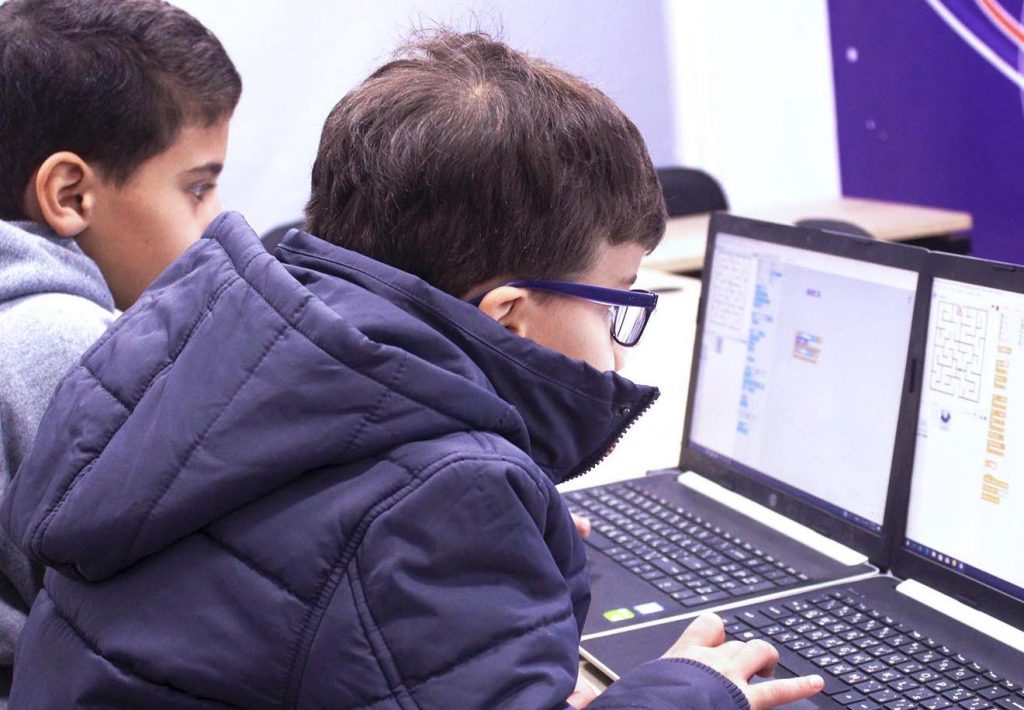-
What We Do
- WHERE WE WORK
-
About Us
 Welcome Message from Carol Jenkins
Welcome Message from Carol JenkinsFor more than 90 years, World Learning has equipped individuals and institutions to address the world’s most pressing problems. We believe that, working together with our partners, we can change this world for the better.
On my travels, I’ve had the opportunity to meet with many of those who have joined us in this mission. In Baghdad, we’ve trained more than 2,300 Iraqi youth who are already giving back at home. In London, our partners in the TAAP Initiative strongly believe that we are all responsible to practice inclusion. And in Vermont, our Experiment in International Living and School for International Training participants prove every day that they have the tools and the determination to change the world.
Please join us in our pursuit of a more peaceful and just world.
- Get Involved
Media Center > Story
World Learning Webinar Will Help Educators Adapt STEM Education for Online Learning
June 24, 2020

During the COVID-19 pandemic, one major concern for parents and educators around the world is students’ loss of learning from students being out of the classroom for so long. While many students are benefiting from online learning, some subjects, such as science, technology, engineering, and mathematics (STEM), can be difficult to move online. To support educators through this process, the Global STEM Learning team at World Learning is hosting a free webinar focused on Adapting STEM Programming to a Virtual Context on June 11 at 9am EST.
“There are so many different ways that we can engage with the students at this time to learn STEM topics so that we can address loss of learning that’s happening because they’re not going to a regular school day,” said Deepa Srikantaiah, senior education and research specialist at World Learning.
The webinar will feature a panel discussion with representatives from three of World Learning’s STEM centers, Programs and Training Manager Ahmad Towfeq from the STEM Hub in Cairo, Director Mohamed Abdelaziz from the STEAM Center in Riyadh, and STEM Education Specialist Achraf Meguellati from the Algiers STEM Center, as well as Erica Barrueto, director of the Bowers Institute at World Learning partner organization The Tech Interactive in San Jose, California. The panel will tackle tactics, challenges, and successes with creating effective virtual STEM programming. There will also be time for questions from participants.
Srikantaiah said the webinar will explore how teachers can use online resources and tools to teach STEM topics virtually, while still providing the hands-on activities often used in STEM education. She said while students may not be in a classroom, there are ways to develop engaging lessons students can do anywhere.
“The nice thing about STEM is that it is all around us,” Srikantaiah said. “It’s at home. It’s in our backyard. It’s in our communities.”
The webinar will include information on how to tailor lessons and activities based on the resources available to students. While some may have easy access to computers and the internet, others may only be able to get online for a few hours a day, if at all.
While educators and program implementers are the main audience, the webinar is open to everyone. Srikantaiah said it may also be beneficial for parents and others who are interested in improving STEM education in their schools and communities and providing students with opportunities to engage in educational activities while schools are closed.
Srikantaiah said she believes it is vital to continue STEM learning during this difficult time because its focus on inquiry-based learning and problem solving helps provide students with a holistic education. The lessons learned through STEM activities can be applied to many other topics, both inside and out of the classroom, to help prepare students to tackle challenges facing their communities and the world.
“STEM education is so important for creativity and innovation and thinking outside the box,” she said, adding. “I think it makes you a better global citizen because you think about things critically.”





